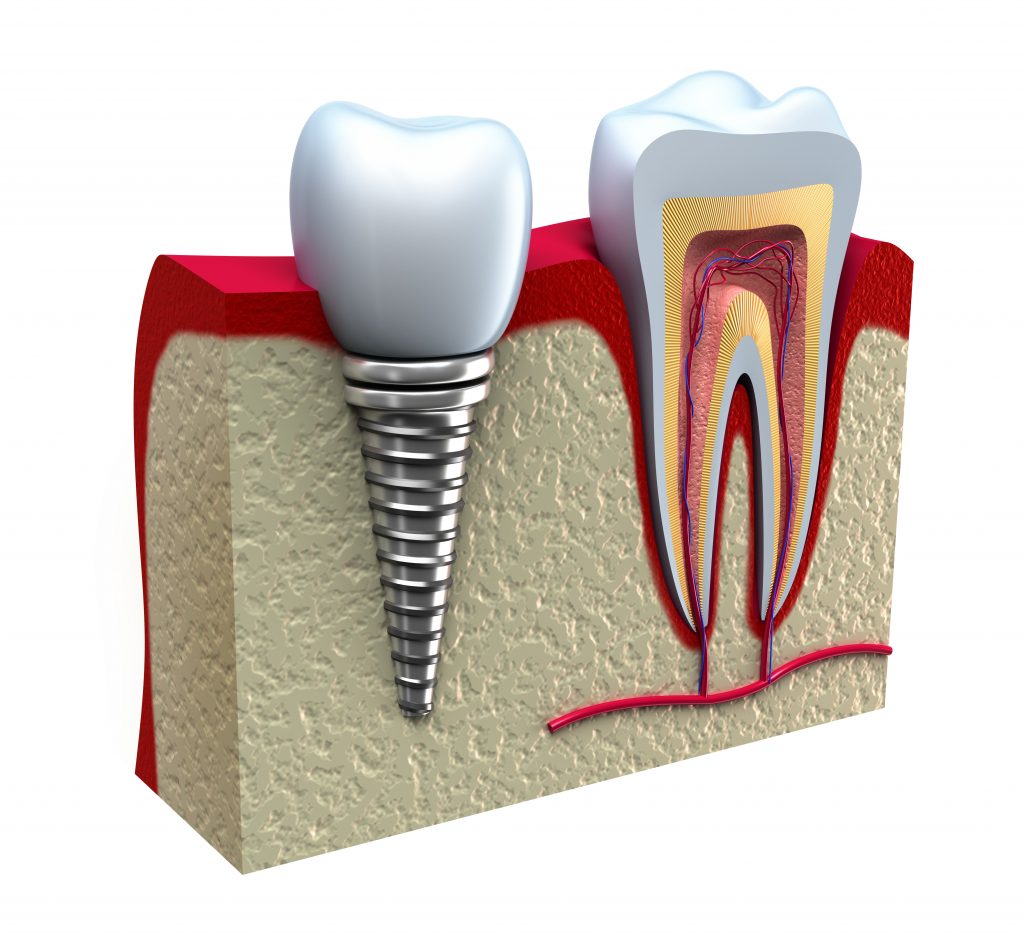

Having a healthy jawbone and gums is important for the success of your dental implants. If you are interested in implants for restoring your teeth or you have already have an implant and are concerned about gum disease, you have come to the right place. Let Dr. Brace and his team explain how this common condition can affect your dental implants.
Symptoms of Gum Disease
Half of all adults over the age of 30 have some degree of periodontal (gum) disease and it is the leading cause of tooth loss for adults. Some symptoms to look for that may indicate gum disease include:
- Receded, swollen or tender gums.
- Gums that bleed during brushing, flossing or chewing hard foods.
- Bad breath that persists.
- Sores in the mouth and/or pus between the teeth and gums.
- Misaligned bite due to teeth that have shifted.
If you expect that you have gum disease, hope is not lost. With proper care and preparatory treatments, you may still be a good candidate for dental implants.
How Gum Disease Affects Dental Implants
The success of dental implants depends on the process of osseointegration which is when the jawbone bonds to the titanium implant post, creating a strong anchor for a replacement tooth. The bone loss and tissue damage that can result from gum disease can interrupt the osseointegration process, causing implant failure. This is why it is vitally important to treat and prevent gum disease before and after the implant process.
- Before Implant Placement – It is advised that patients be free from gum disease and infection before beginning the implant dentistry process for the best possible outcome. Having gum disease can affect, but not necessarily rule you out as a candidate for dental implants. In addition to clearing up gum disease, some patients may need supplemental procedures such as bone regeneration or soft tissue augmentation to better prepare them for implants.
- After Implant Placement – Once you have your implant, it is imperative that you take good care of your teeth and gums to help ensure continued success. The bone loss and tissue damage that is caused by gum disease and infection can lead to implant failure. One of the benefits of dental implants is that they can be brushed and flossed just like natural teeth, making proper care a breeze.
Learn More About Dental Implants at St. Louis County Dental
If you are concerned about how gum disease may affect your success with or candidacy for dental implants, we invite you to schedule a consultation with at our St. Louis practice today. Even if you have periodontal disease, Dr. Brace and our team can create a treatment plan to address the condition, improving your candidacy for dental implants.
